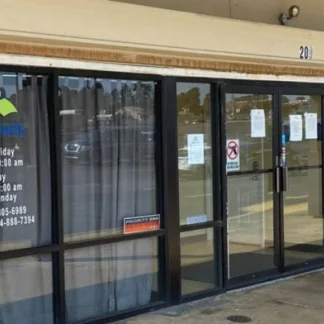Oconee County - Mental Health
Oconee County – Mental Health is a public rehab located in Seneca, South Carolin...
Crossroads Treatment Center is a substance abuse treatment center in Seneca, South Carolina. The Crossroads network is dedicated to delivering affordable and effective medication assisted treatment (MAT) to all clients seeking help. They serve adult clients. Treatment at Crossroads is performed on an outpatient basis. They're dedicated to improving medical equity, and to that end, they provide all clients with the same quality care regardless of their backgrounds. Services offered include:
The use of FDA approved medications in the treatment of drug or alcohol addiction can make clients more receptive to therapy by reducing or eliminating cravings and withdrawal symptoms. Crossroads uses methadone and suboxone for MAT, and all medication use is closely monitored by staff to ensure client safety. MAT is given alongside counseling, and clients cannot receive MAT without also participating in counseling.
Clients visit the clinic on a regular schedule during an outpatient program. During these visits, clients meet with the medical team to receive their medication and with a counselor. The goal of counseling is to help clients develop healthy habits and coping skills so they can maintain their sobriety. Counseling includes individual and group therapy, medical care, ongoing assessments, and coordination with other care services in the community.
Crossroads Treatment Center accepts Medicaid, Medicare, and most private insurance plans.
Contact us for more information: (864) 888-2337

Connect with Crossroads Treatment Center by calling their admissions team directly.
(864) 888-2337 Website Get DirectionsThe Commission on Accreditation of Rehabilitation Facilities (CARF) is a non-profit organization that specifically accredits rehab organizations. Founded in 1966, CARF's, mission is to help service providers like rehab facilities maintain high standards of care.
CARF Accreditation: Yes Accreditation Number: 238366
The Substance Abuse and Mental Health Services Administration (SAMHSA) is a branch of the U.S. Department of Health and Human Services. Established in 1992 by congress, SAMHSA's mission is to reduce the impact of substance abuse and mental illness on American's communities.
SAMHSA Listed: Yes
State Licenses are permits issued by government agencies that allow rehab organizations to conduct business legally within a certain geographical area. Typically, the kind of program a rehab facility offers, along with its physical location, determines which licenses are required to operate legally.
State License: South Carolina
Cognitive Behavioral Therapy (CBT) is a therapy modality that focuses on the relationship between one's thoughts, feelings, and behaviors. It is used to establish and allow for healthy responses to thoughts and feelings (instead of unhealthy responses, like using drugs or alcohol). CBT has been proven effective for recovering addicts of all kinds, and is used to strengthen a patient's own self-awareness and ability to self-regulate. CBT allows individuals to monitor their own emotional state, become more adept at communicating with others, and manage stress without needing to engage in substance abuse.
In individual therapy, a patient meets one-on-one with a trained psychologist or counselor. Therapy is a pivotal part of effective substance abuse treatment, as it often covers root causes of addiction, including challenges faced by the patient in their social, family, and work/school life.
Motivational Interviewing (MI) is a clinical approach to helping people with substance abuse issues and other conditions shift behavior in positive ways. It is more goal-oriented than traditional psychotherapy, as MI counselors directly attempt to get clients to consider making behavioral change (rather than wait for them to come to conclusions themselves). Its primary purpose is to resolve ambivalence and help clients become able to make healthy choices freely.
In individual therapy, a patient meets one-on-one with a trained psychologist or counselor. Therapy is a pivotal part of effective substance abuse treatment, as it often covers root causes of addiction, including challenges faced by the patient in their social, family, and work/school life.
Motivational Interviewing (MI) is a clinical approach to helping people with substance abuse issues and other conditions shift behavior in positive ways. It is more goal-oriented than traditional psychotherapy, as MI counselors directly attempt to get clients to consider making behavioral change (rather than wait for them to come to conclusions themselves). Its primary purpose is to resolve ambivalence and help clients become able to make healthy choices freely.
Motivational Interviewing (MI) is a clinical approach to helping people with substance abuse issues and other conditions shift behavior in positive ways. It is more goal-oriented than traditional psychotherapy, as MI counselors directly attempt to get clients to consider making behavioral change (rather than wait for them to come to conclusions themselves). Its primary purpose is to resolve ambivalence and help clients become able to make healthy choices freely.
Oconee County – Mental Health is a public rehab located in Seneca, South Carolin...
Brandon’s House is a private rehab located in Seneca, South Carolina. Brandon’s ...
Anderson Oconee Behavioral Health Services is located in Seneca, South Carolina....
SCVRD Seneca is a private rehab located in Seneca, South Carolina. SCVRD Seneca ...